ACC.24: Late-Breaking Science Video Collection
Published: 06 April 2024
-
Views:
 5480
5480
-
Likes:
 7
7
-
Views:
 5480
5480
-
Likes:
 7
7
-
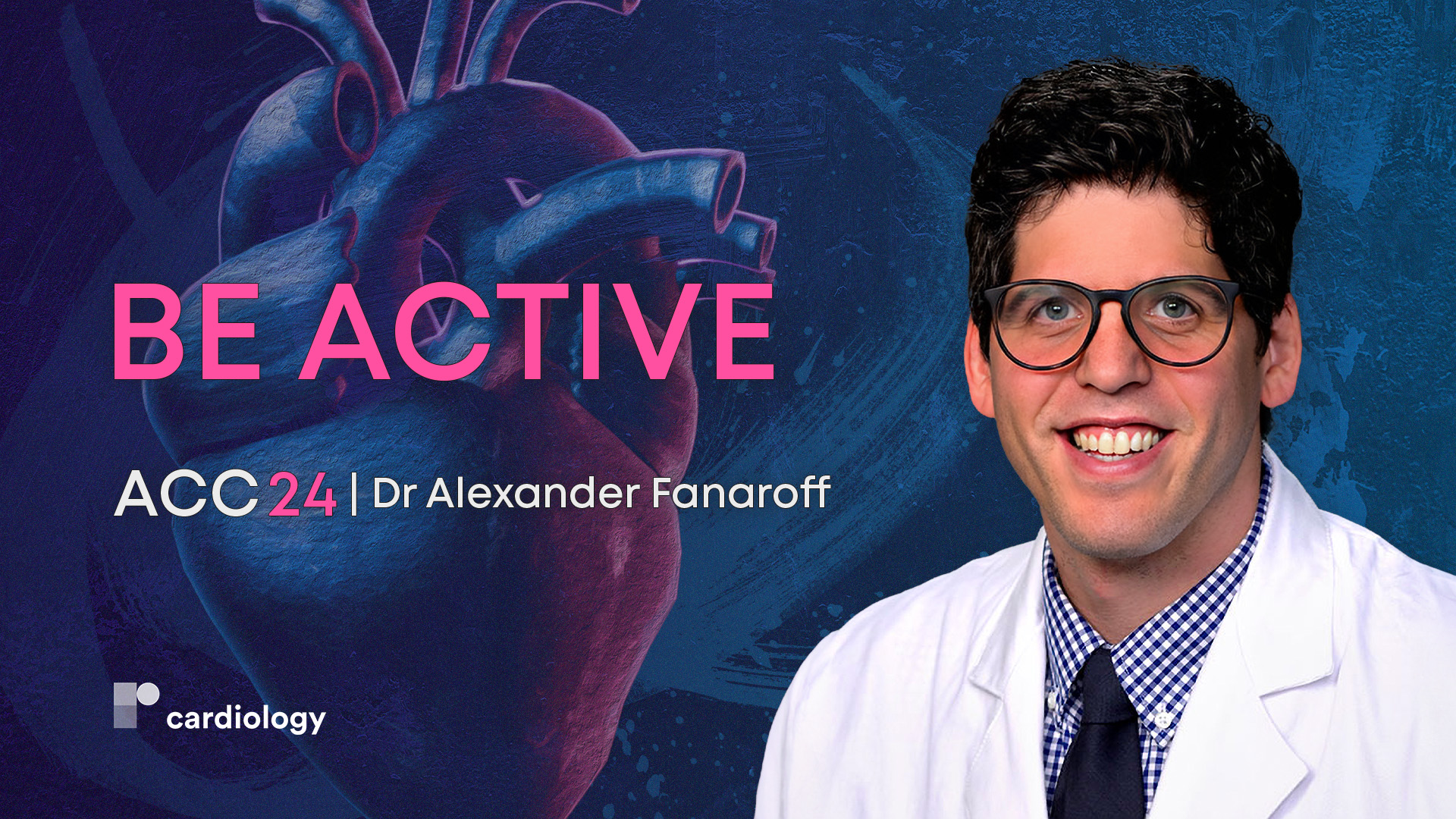 Up Next
Up Next -
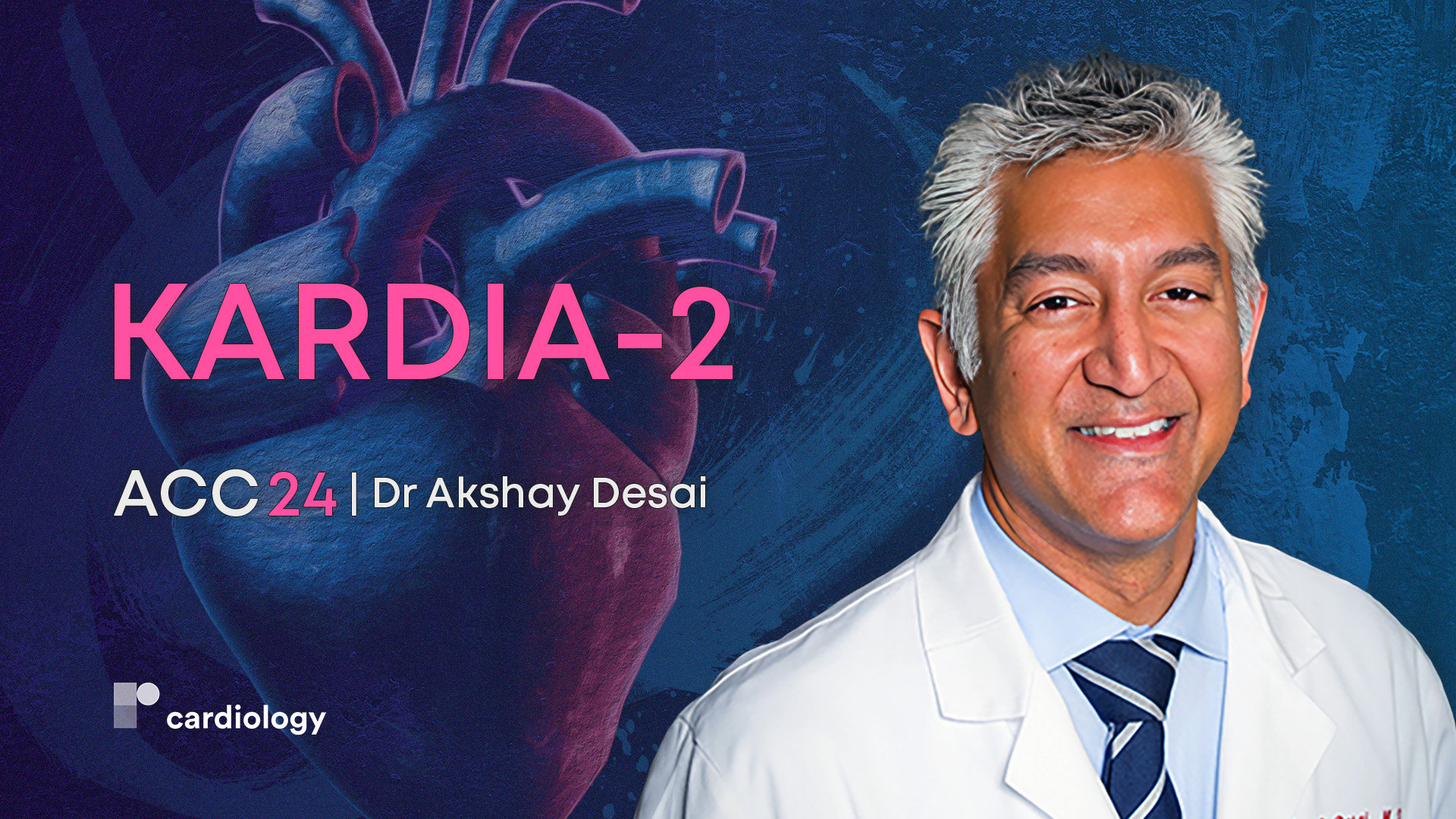 7m 49sPart 3 | Session 2 Zilbesiran in Patients With Hypertension: KARDIA-2
7m 49sPart 3 | Session 2 Zilbesiran in Patients With Hypertension: KARDIA-2 -
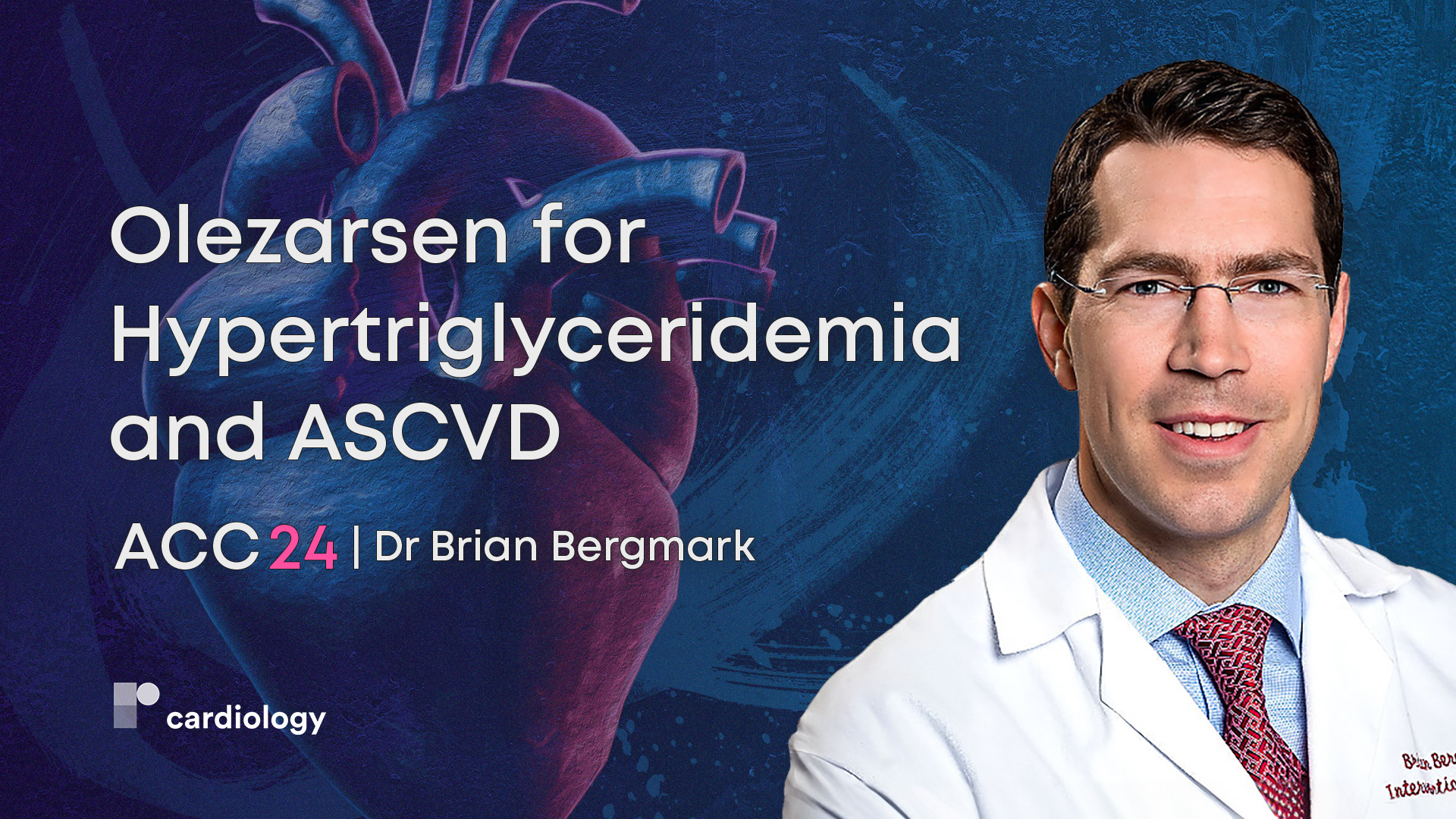 3m 40s
3m 40s -
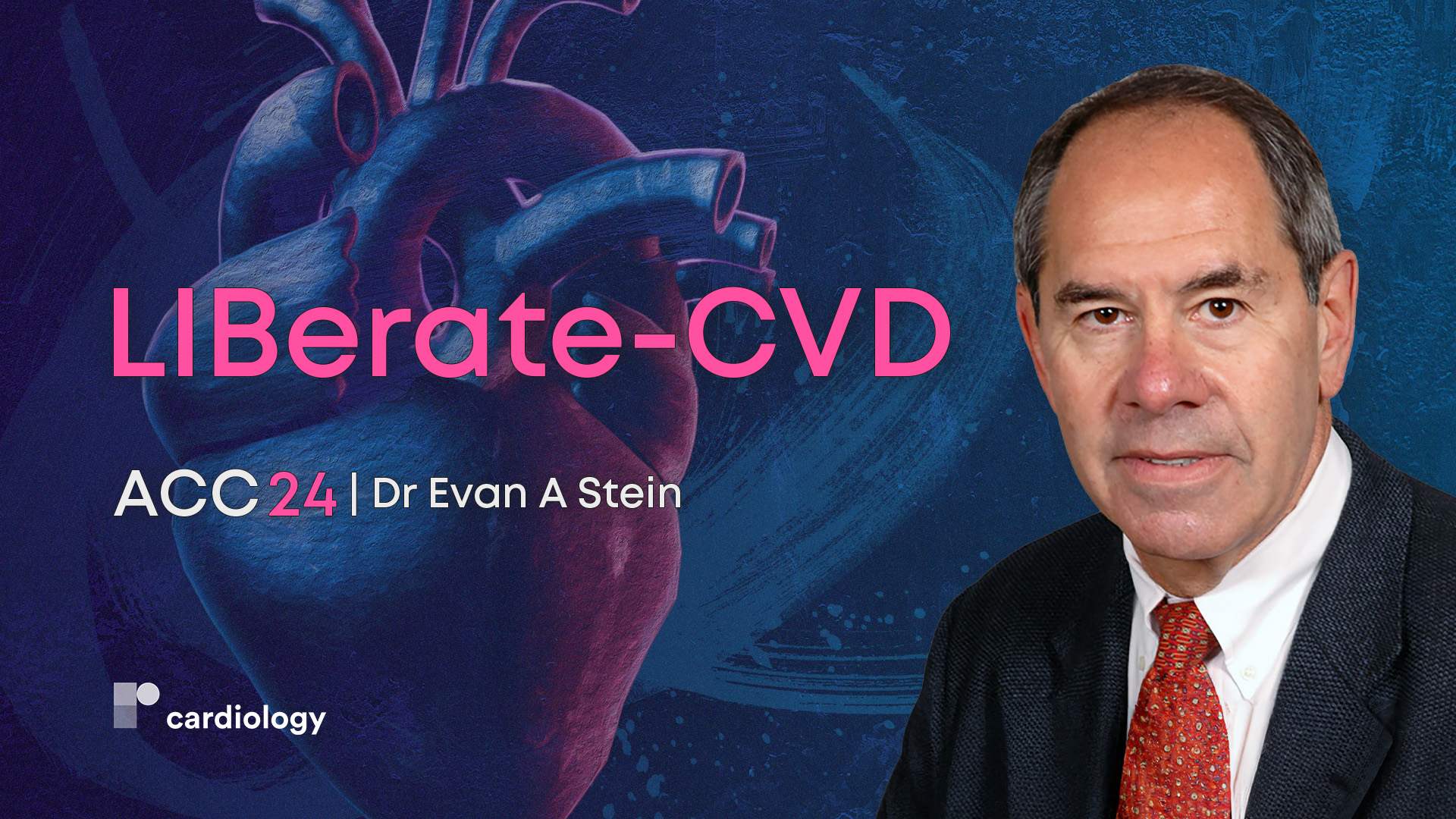 7m 18s
7m 18s -
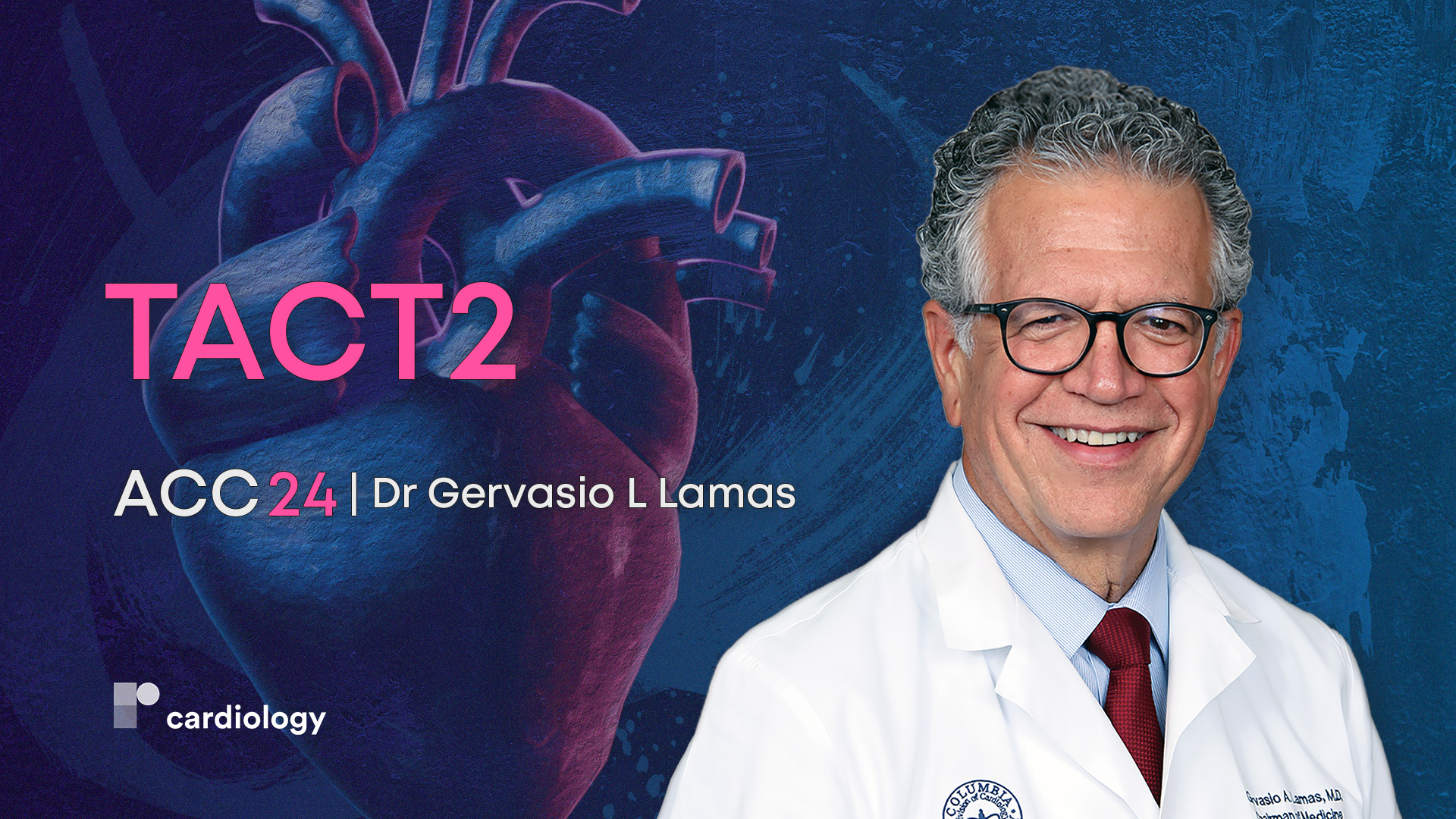 6m 40sPart 3 | Session 5 Chelation Therapy in Post-MI Pts with Diabetes: TACT2
6m 40sPart 3 | Session 5 Chelation Therapy in Post-MI Pts with Diabetes: TACT2 -
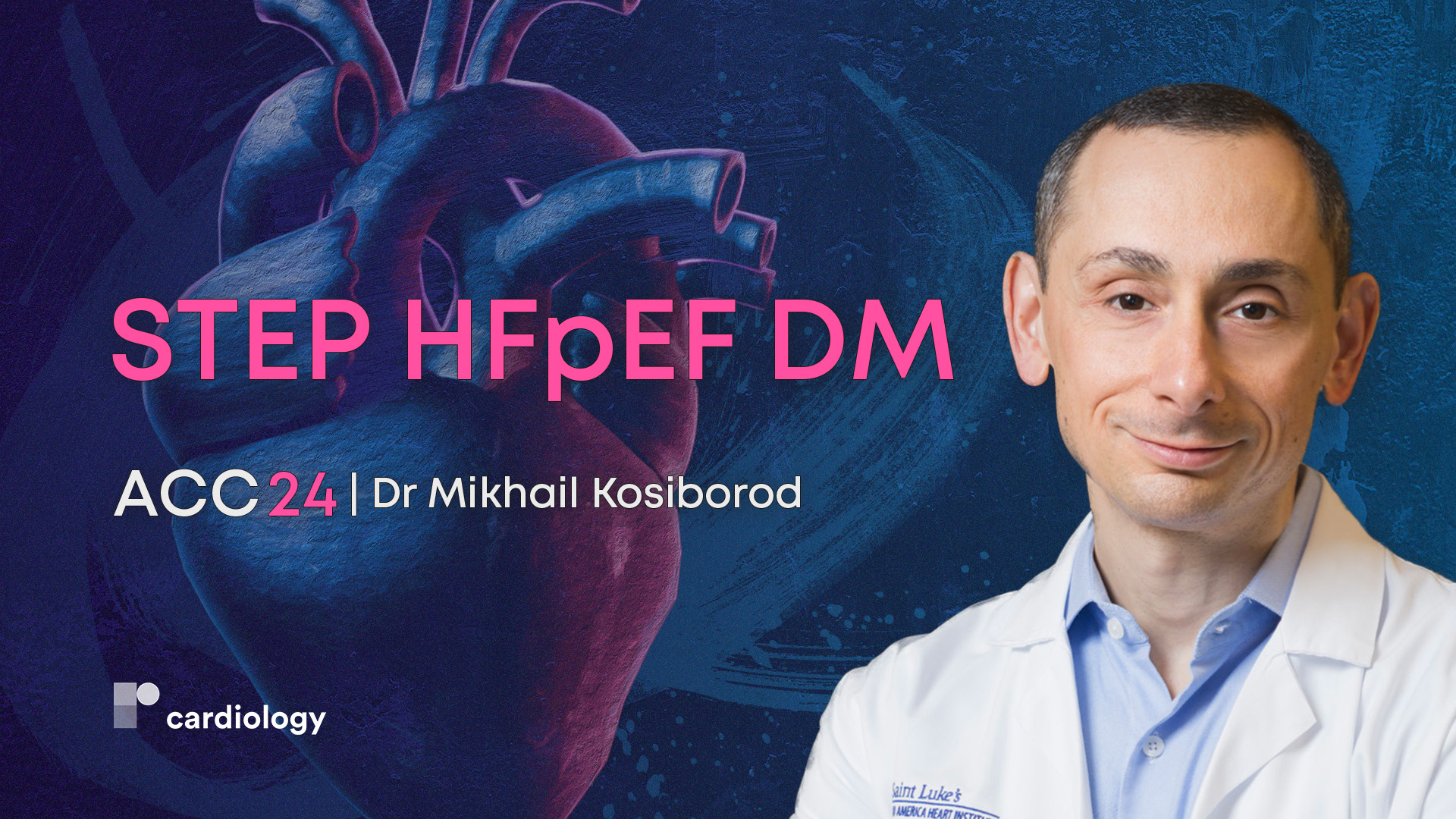 6m 41sPart 3 | Session 6 Semaglutide in Patients with HfpEF, Obesity and Diabetes: STEP HFpEF
6m 41sPart 3 | Session 6 Semaglutide in Patients with HfpEF, Obesity and Diabetes: STEP HFpEF -
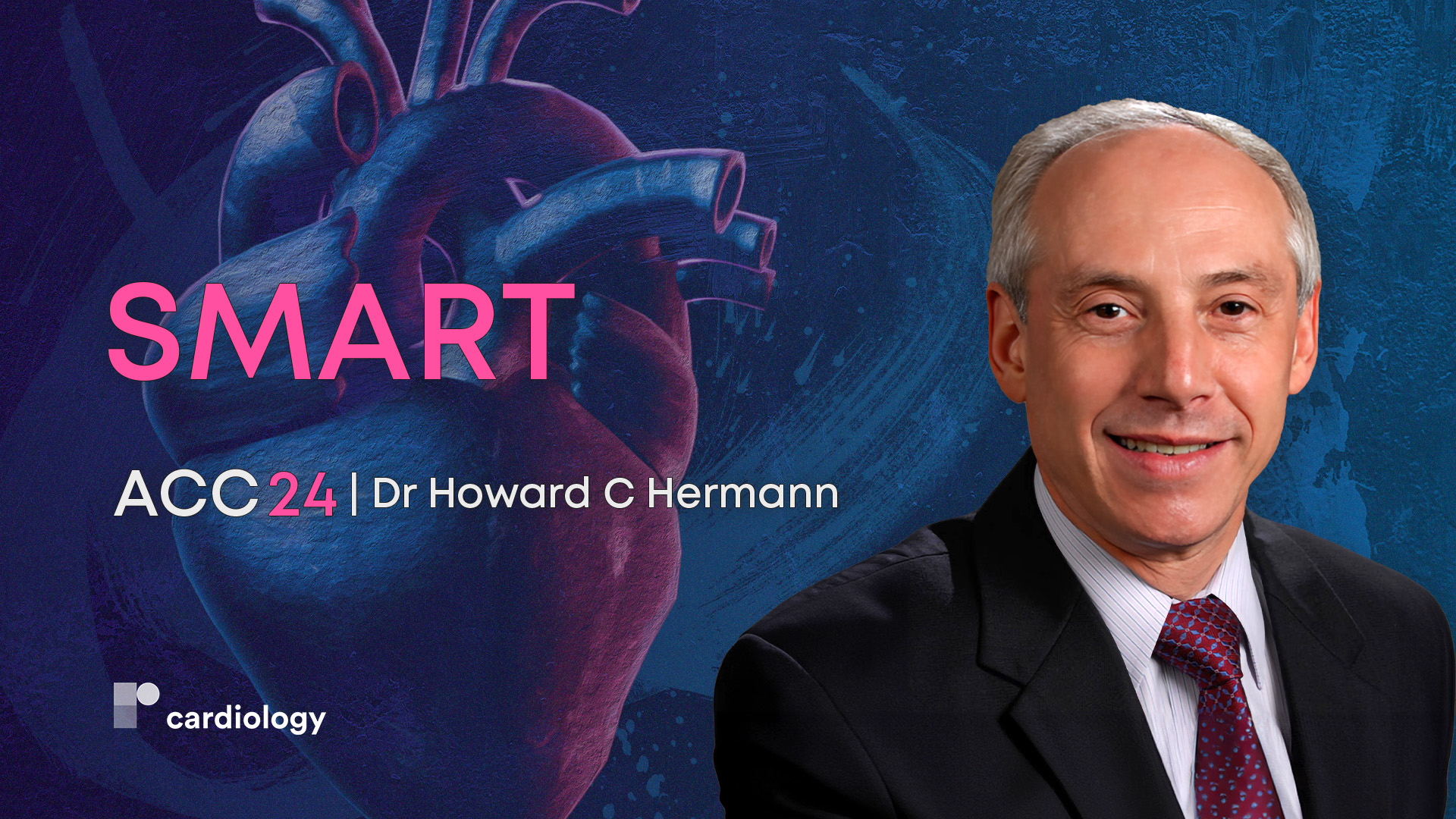 5m 41sPart 3 | Session 7 Self-Expanding vs Balloon Expandable TAVR: The SMART Trial
5m 41sPart 3 | Session 7 Self-Expanding vs Balloon Expandable TAVR: The SMART Trial -
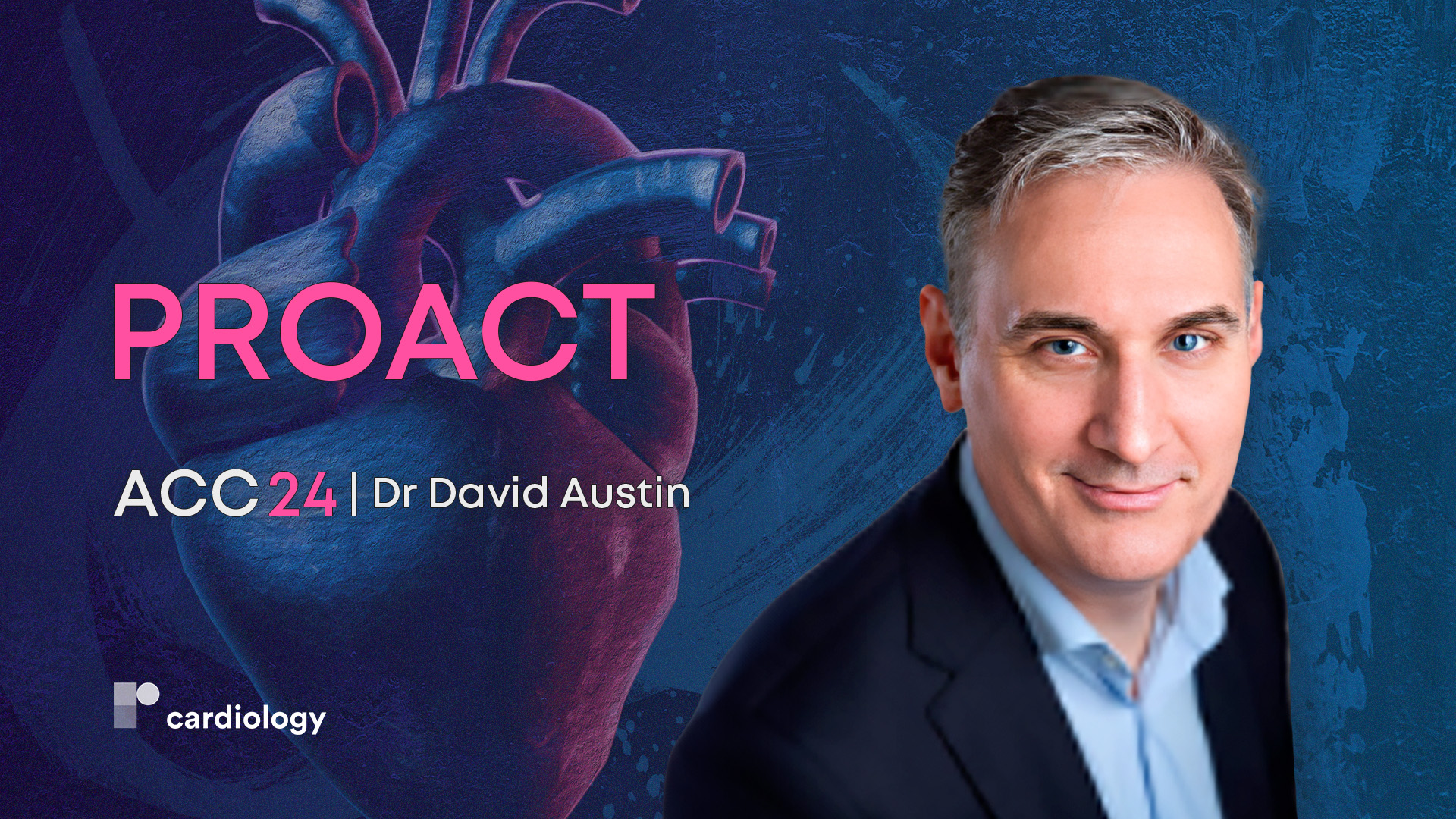 3m 37s
3m 37s -
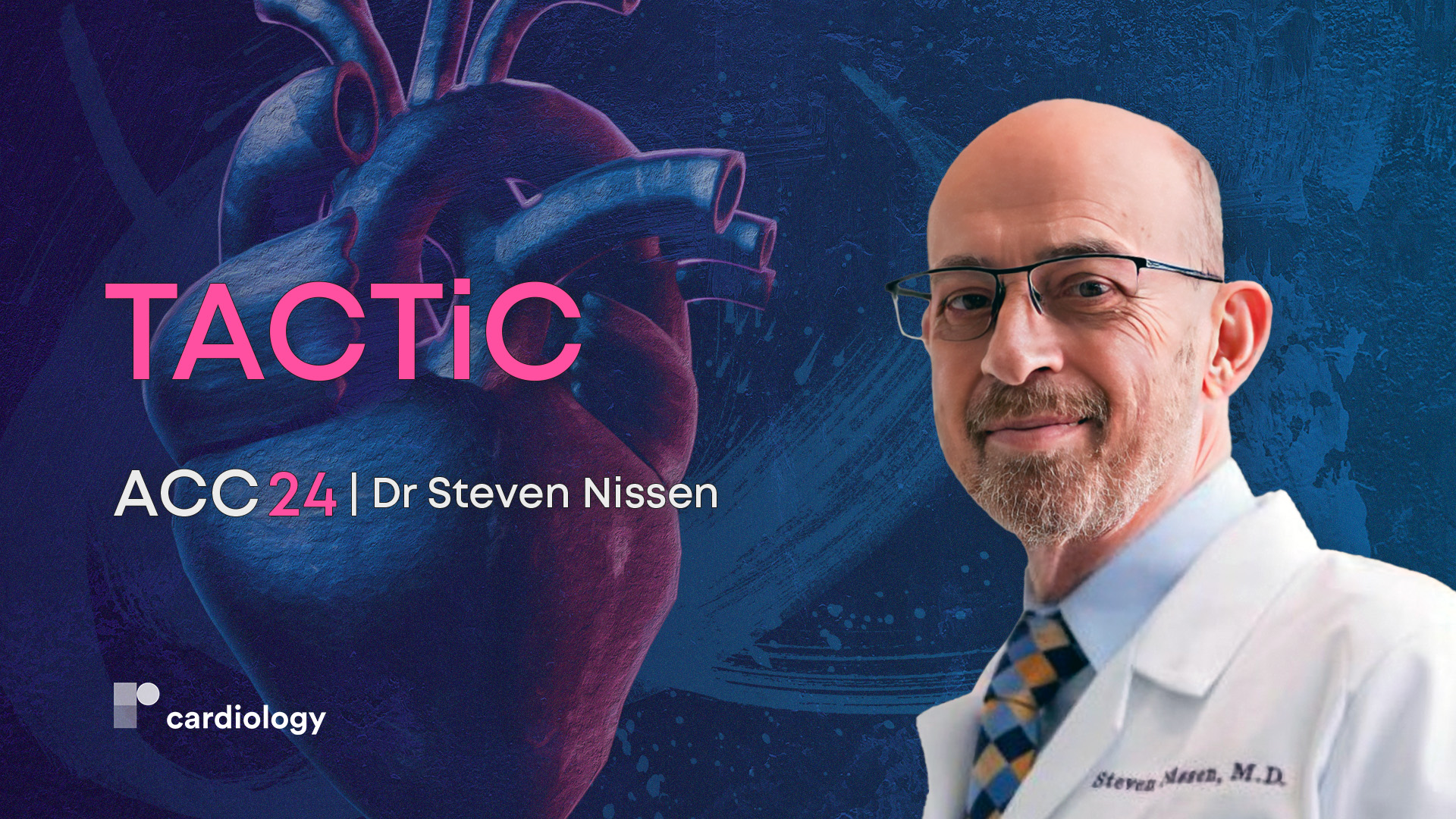 4m 35sPart 3 | Session 9 Technology-Assisted Nonprescription Rosuvastatin: TACTiC
4m 35sPart 3 | Session 9 Technology-Assisted Nonprescription Rosuvastatin: TACTiC -
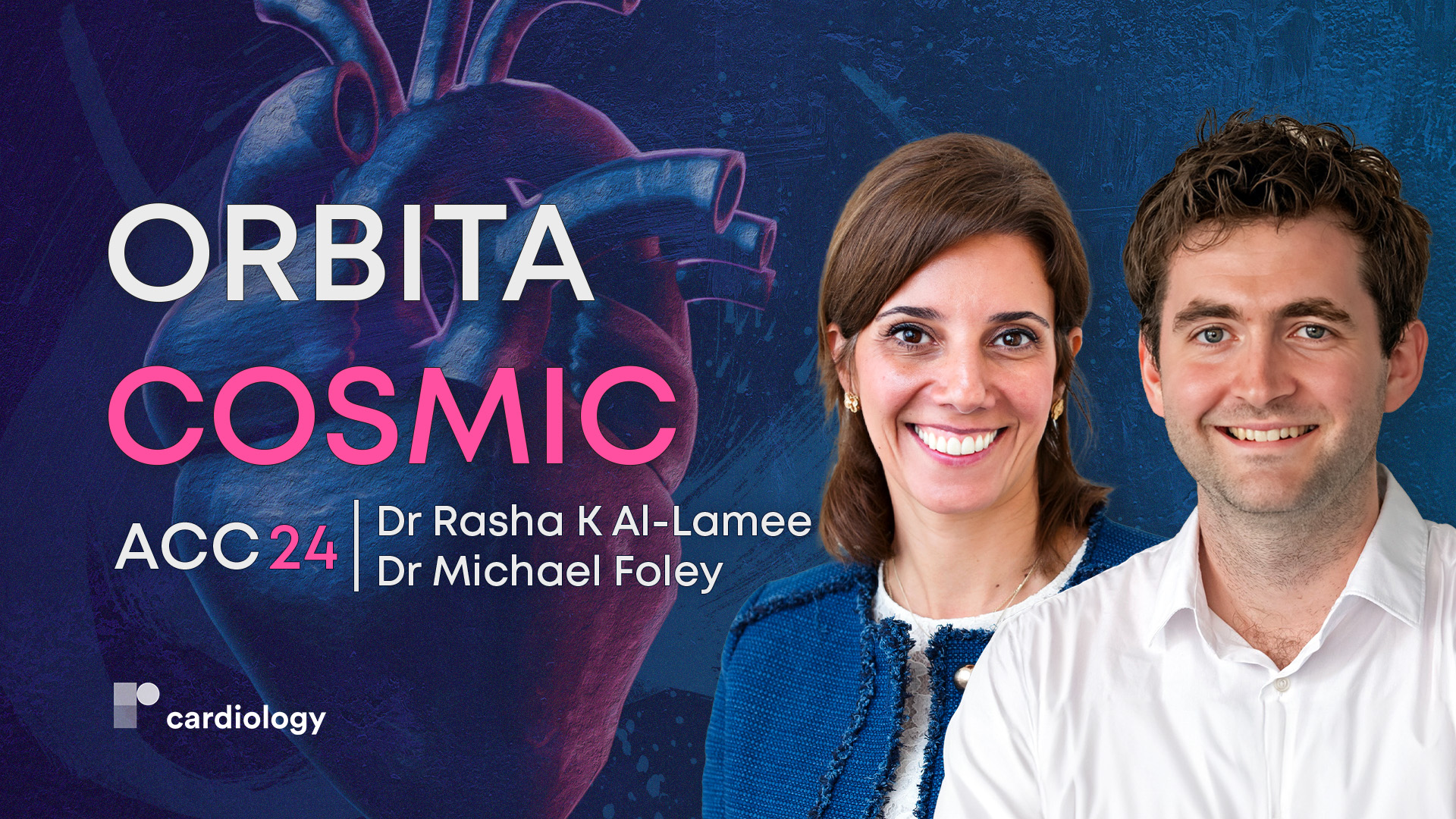 4m 45sPart 3 | Session 10 Coronary Sinus Reducer in Refractory Angina: ORBITA COSMIC
4m 45sPart 3 | Session 10 Coronary Sinus Reducer in Refractory Angina: ORBITA COSMIC -
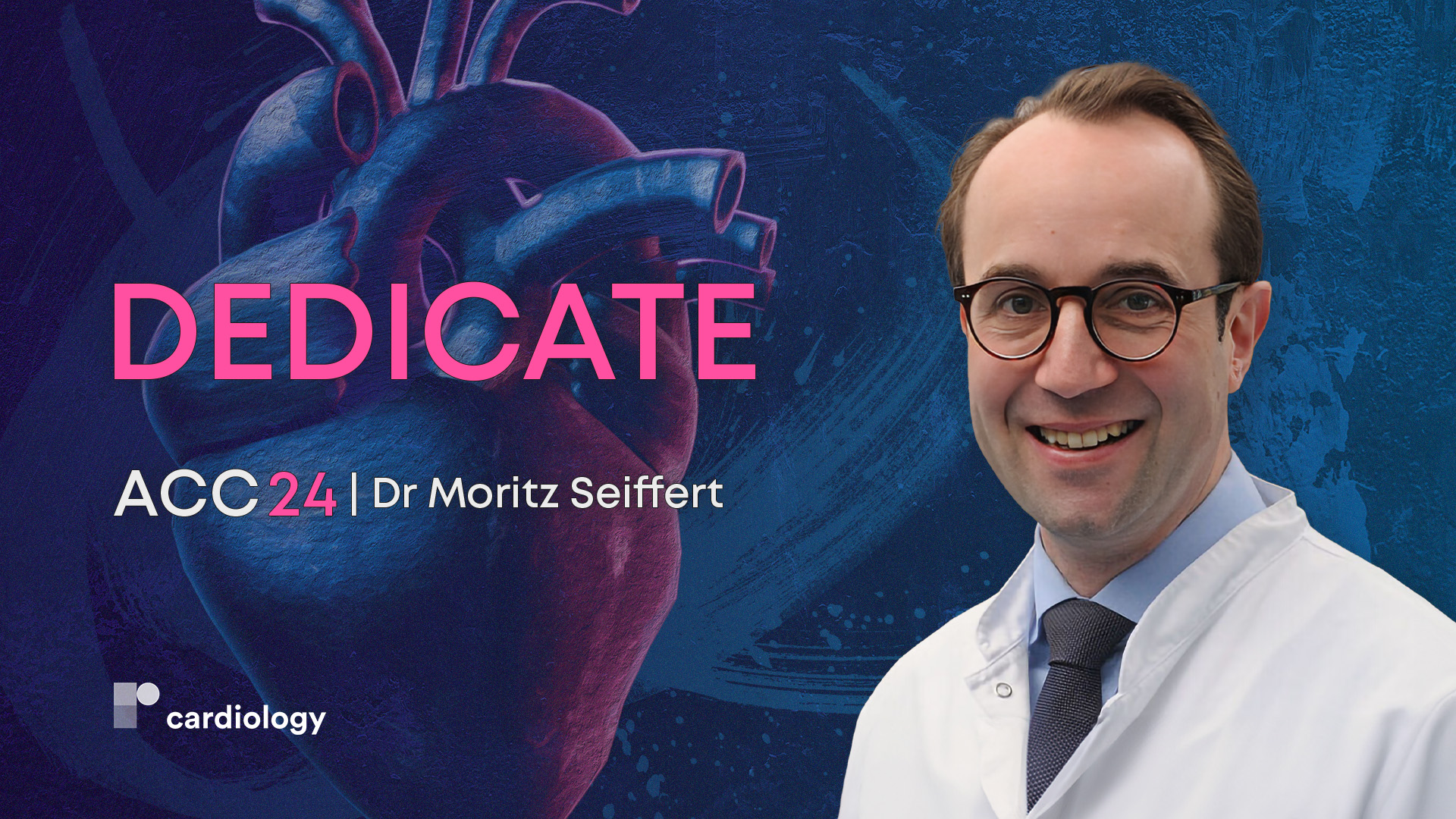 2m 30sPart 3 | Session 11 TAVI Vs SAVR in Patients with Severe Aortic Valve Stenosis: DEDICATE-DZHK6
2m 30sPart 3 | Session 11 TAVI Vs SAVR in Patients with Severe Aortic Valve Stenosis: DEDICATE-DZHK6 -
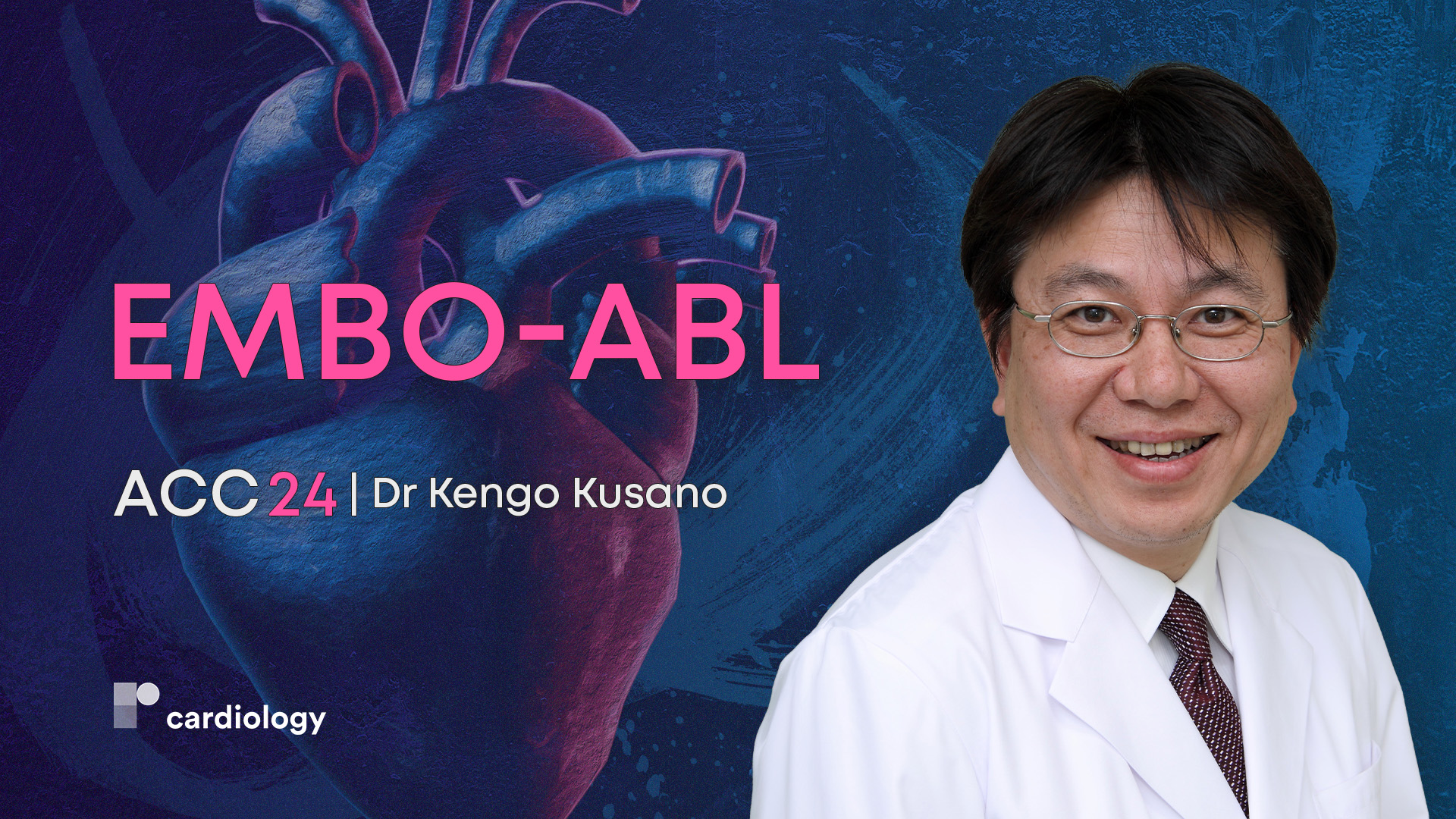 4m 17s
4m 17s
-
 6m 45sPart 4 | Session 1 Artificial Intelligence in Cardiology: What You Need to Know in 2024
6m 45sPart 4 | Session 1 Artificial Intelligence in Cardiology: What You Need to Know in 2024 -
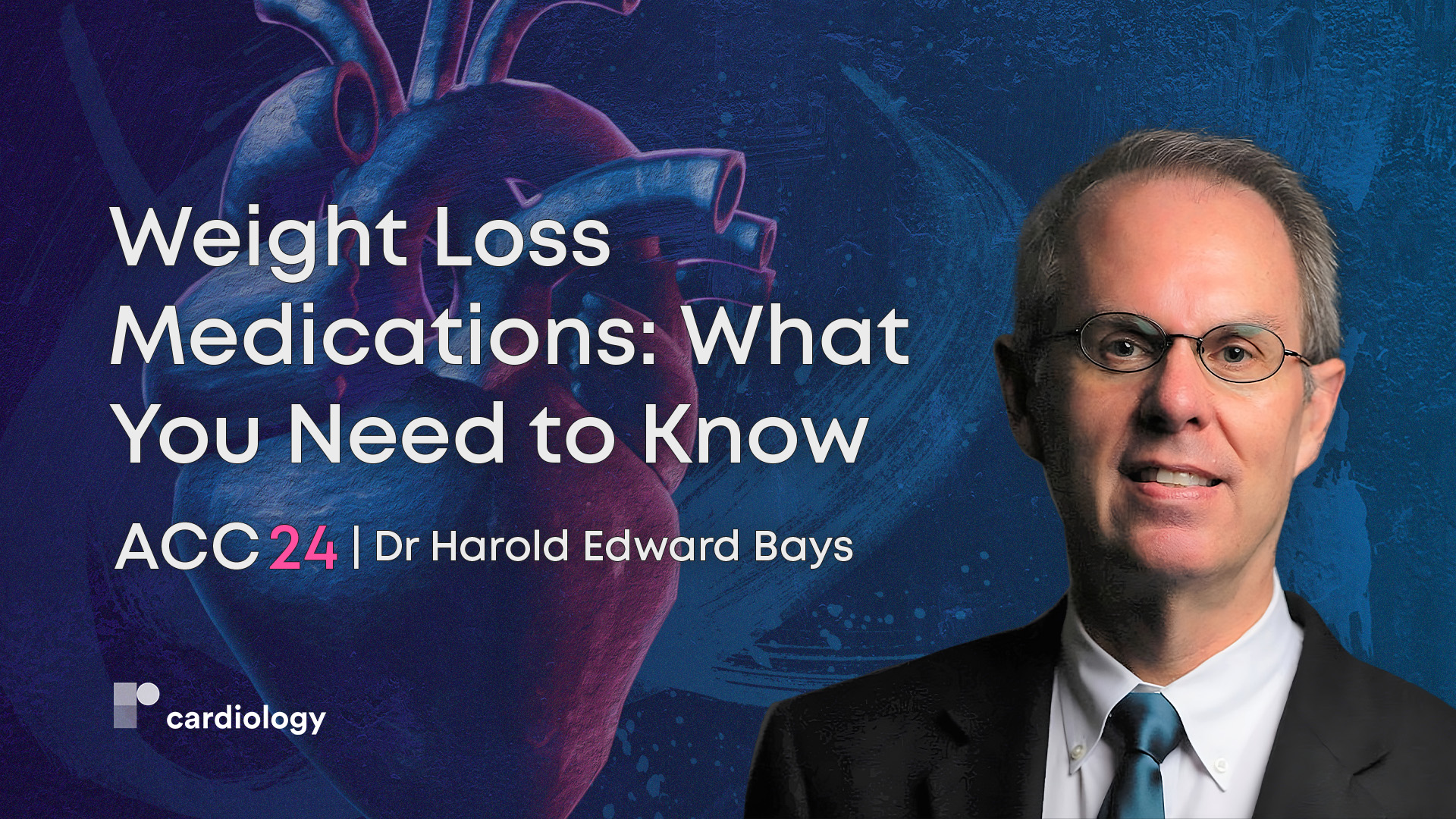 6m 21sPart 4 | Session 2 Weight Loss Medications: What You Need to Know in 2024
6m 21sPart 4 | Session 2 Weight Loss Medications: What You Need to Know in 2024
-
 43m 48sPart 1 | Session 1 ACC.24 Late-breaking Science Wrap Up Nicolas M Van Mieghem, Joost Daemen
43m 48sPart 1 | Session 1 ACC.24 Late-breaking Science Wrap Up Nicolas M Van Mieghem, Joost Daemen
-
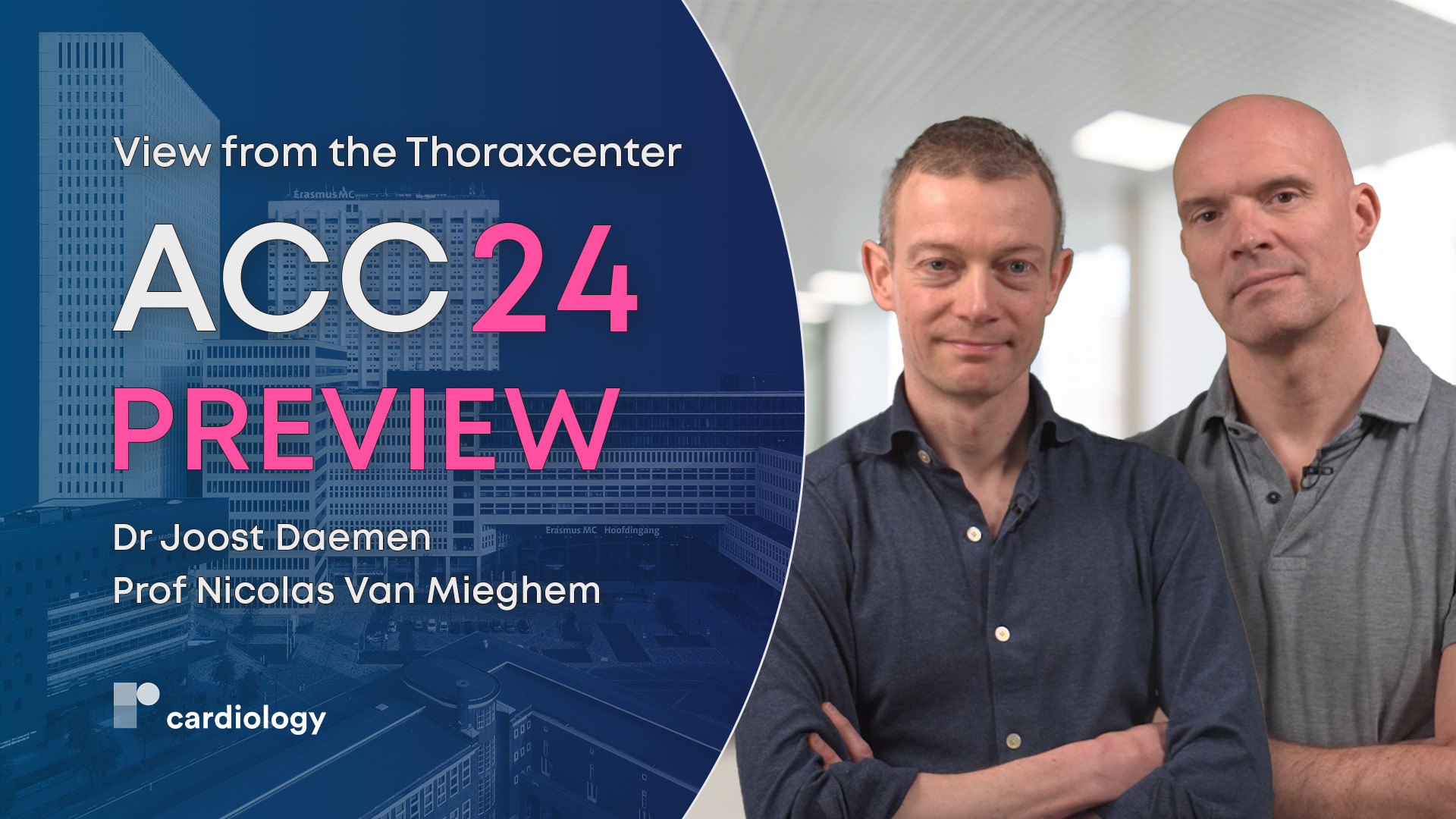 28m 9sPart 1 | Session 2 What's Hot at ACC.24? Late-breaking Science Preview Nicolas M Van Mieghem, Joost Daemen
28m 9sPart 1 | Session 2 What's Hot at ACC.24? Late-breaking Science Preview Nicolas M Van Mieghem, Joost Daemen
-
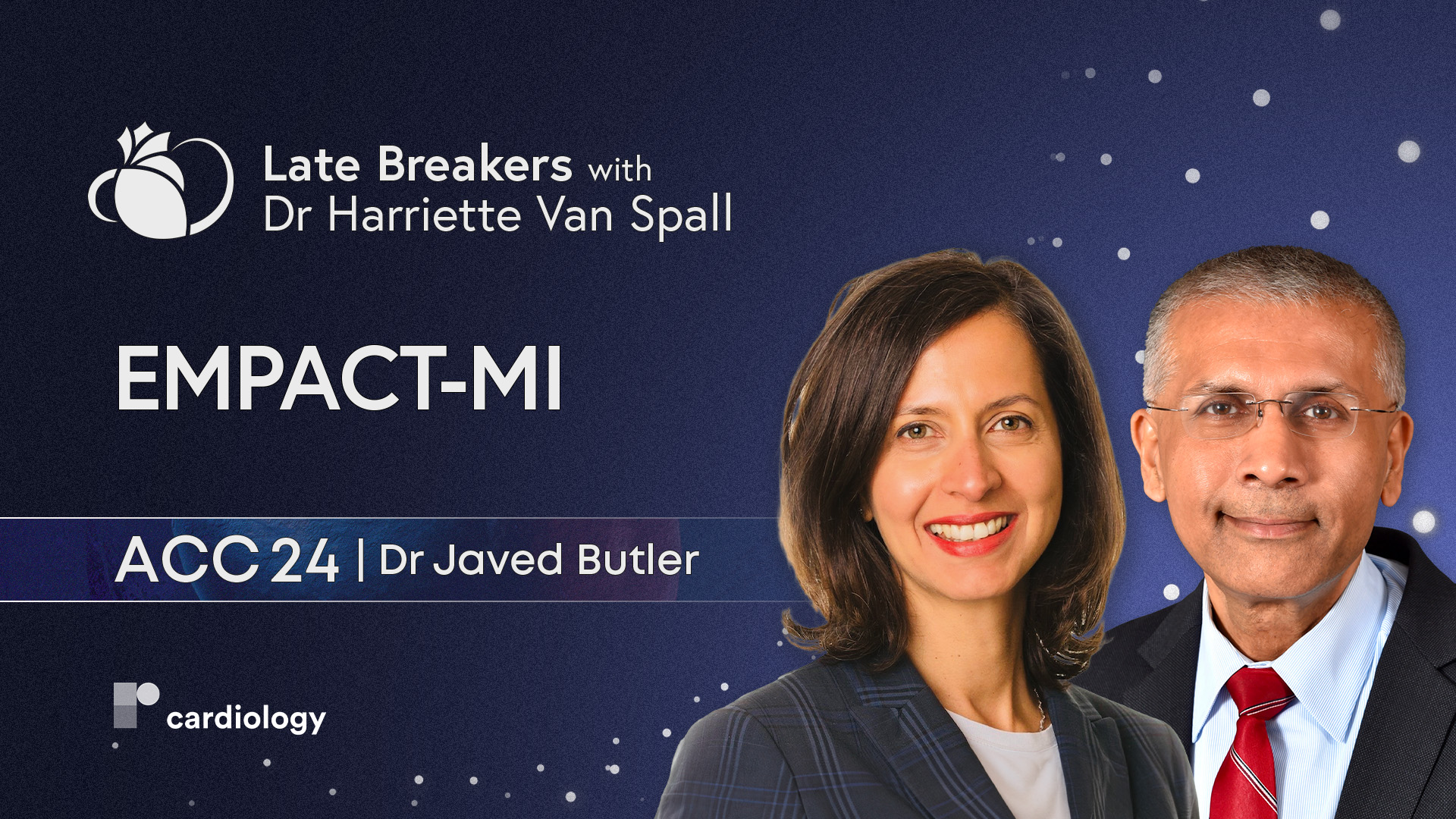 22m 43sPart 2 | Session 1 Late-Breaker Discussion: The EMPACT-MI Trial Harriette Van Spall, Javed Butler
22m 43sPart 2 | Session 1 Late-Breaker Discussion: The EMPACT-MI Trial Harriette Van Spall, Javed Butler
-
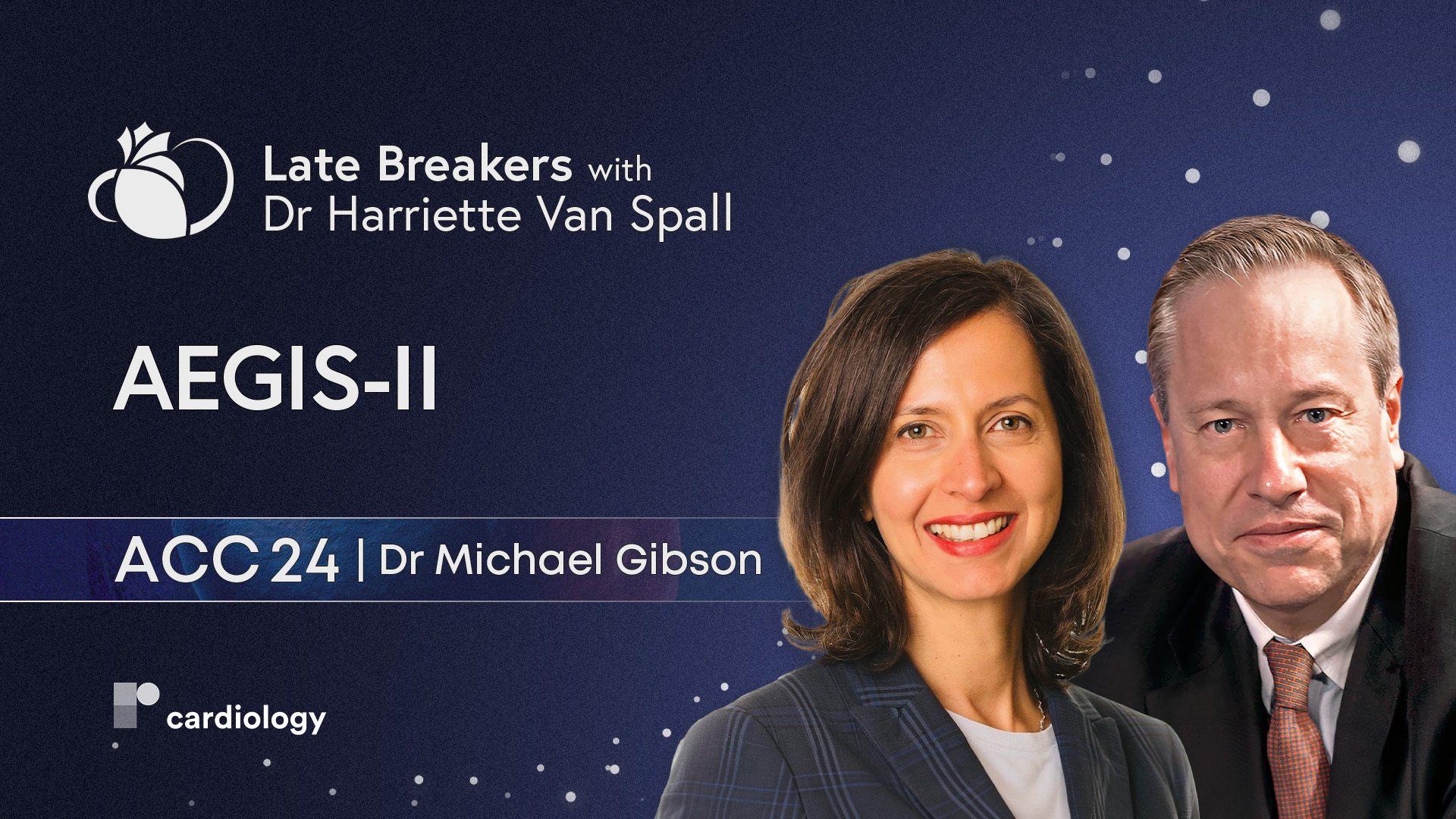 14m 7sPart 2 | Session 2 Late-Breaker Discussion: The AEGIS-II Trial Michael C Gibson, Harriette Van Spall
14m 7sPart 2 | Session 2 Late-Breaker Discussion: The AEGIS-II Trial Michael C Gibson, Harriette Van Spall
-
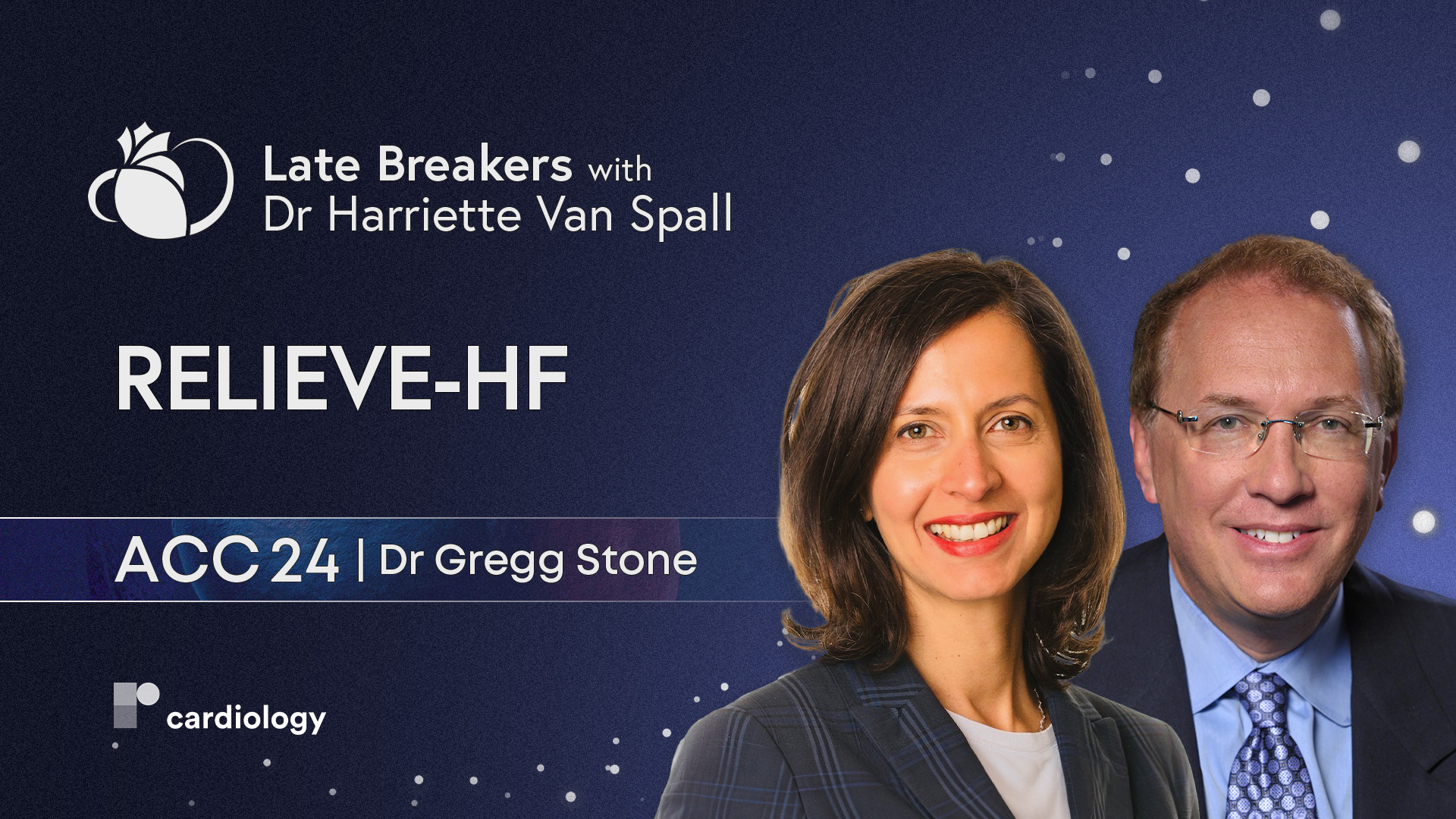 29m 8sPart 2 | Session 3 Late-Breaker Discussion: The RELIEVE-HF Trial Gregg Stone, Harriette Van Spall
29m 8sPart 2 | Session 3 Late-Breaker Discussion: The RELIEVE-HF Trial Gregg Stone, Harriette Van Spall
-
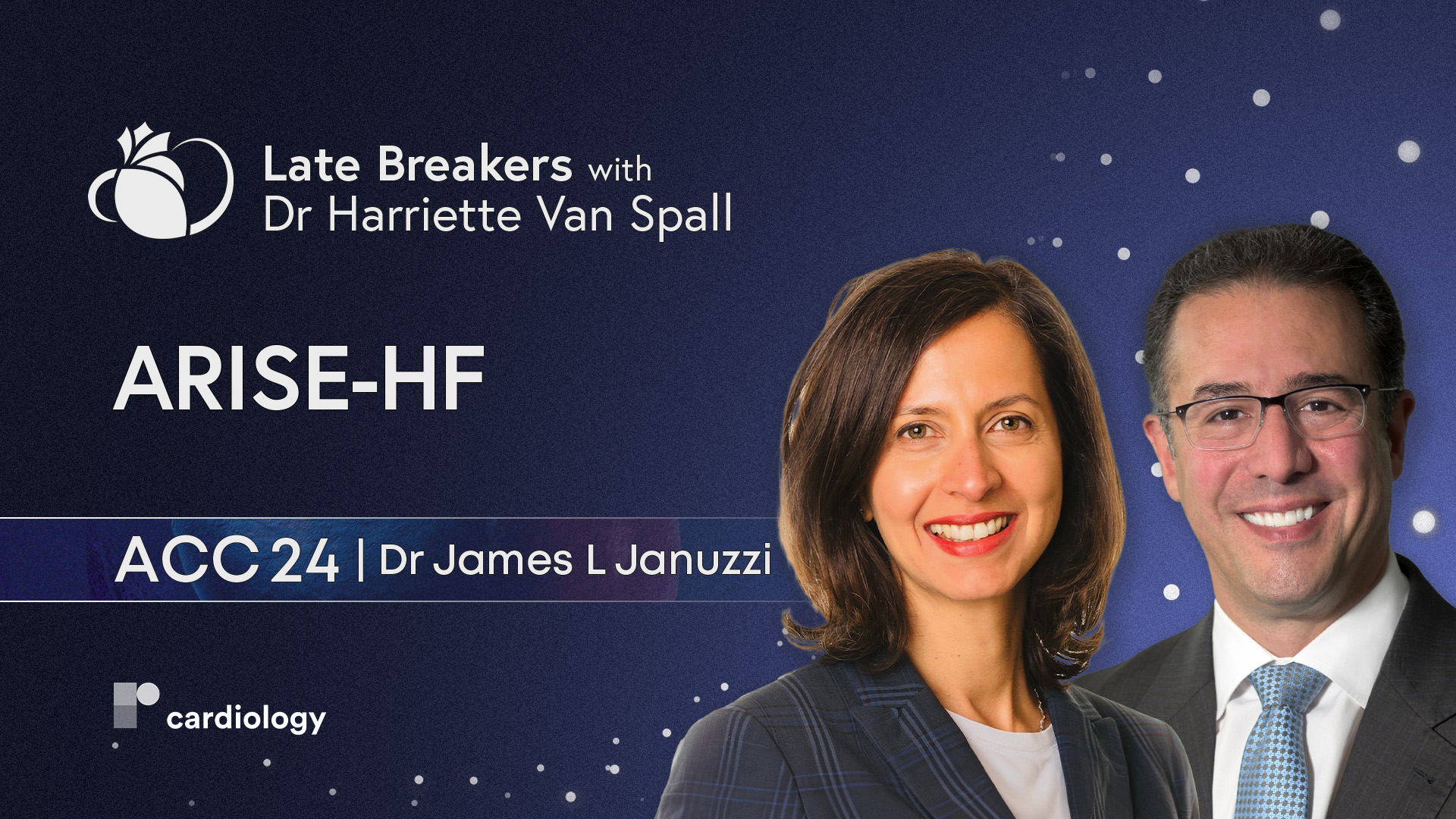 23m 6sPart 2 | Session 4 Late-Breaker Discussion: The ARISE-HF Trial Harriette Van Spall, James L Januzzi
23m 6sPart 2 | Session 4 Late-Breaker Discussion: The ARISE-HF Trial Harriette Van Spall, James L Januzzi
Overview
Our recurring review series, View from the Thoraxcenter, hosted by Prof Nicolas Van Mieghem and Dr Joost Daemen (Thoraxcentre, Erasmus MC, Rotterdam, NL) offers a thorough examination of late-breaking and featured scientific findings, highlighting significant data.
To delve deeper into the pivotal clinical trial data unveiled at ACC 24, Dr Harriette Van Spall (McMaster University, Hamilton, CA) conducts interviews with the principal investigators as part of her Late-Breaker Discussion Series.
For brief and focused coverage of the essential data unveiled, our accessible Expert Interviews were conducted with a select group of faculty members, concentrating on the results, relevance, and implications for future research.
Watch our Behind the Heart series to learn more the personal perspectives from the investigators behind top trials in cardiovascular science.
More from this programme
Part 1
View from the Thoraxcenter
In these concise episodes of View from the Thoraxcenter, Prof Nicolas Van Mieghem and Dr Joost Daemen (Thoraxcentre, Erasmus MC, Rotterdam, NL) offer their thoughts on the top late-breaking trials that will be presented at ACC.24.
Part 2
Late-Breaker Discussion Series
Host, Dr Harriette Van Spall is joined by principal investigators for discussion on selected late-breaking trials.
Part 3
Expert Interviews
Expert Interviews conducted with a select group of faculty members, concentrating on the results, relevance, and implications for future research.
Part 4
Highlights
Part 5
Behind the Heart
Watch our Behind the Heart series to learn more the personal perspectives from the investigators behind top trials in cardiovascular science.
About the episode
ACC.24 — Dr Alexander Fanaroff (Penn Medicine, US) joins us onsite at ACC.24 to discuss the findings from the BE ACTIVE study, which investigated behavioural economic approaches to increasing physical activity (PA) in patients with an elevated risk of cardiovascular disease (NCT03911141).
This randomized, controlled trial enrolled 1062 patients with a 10-year atherosclerotic cardiovascular risk score of 7.5% or greater, including those with existing ASCVD. Patients were split into four arms to evaluate the effectiveness of behavioural economic approaches, including gamification, financial incentives or both in combination to increase PA in this patient group across a 12-month intervention period and 6-month follow up.
Findings showed that at 12 months, mean daily steps for participants in the gamification group increased by 538 steps as compared to the control group. Participants in the financial incentives group increased activity by 491 steps more, while participants who received both interventions increased their steps by 868 more than the control group. At the 18 month follow-up the group who had received both interventions was the only patient group who had statistically significantly greater daily step counts compared to the control group.
Interview Questions:
- What is the rationale behind this study?
- Could you tell us a bit more about the gamification and incentives used in the trial?
- What is the study design and patient population?
- What are the key findings revealed at ACC 24?
- How should these findings impact clinical practice?
- What are your take-home messages for clinicans?
- What are the next steps?
Recorded onsite at the ACC Conference in Atlanta, 2024.
Faculty Biographies

Alexander Fanaroff
Dr. Alexander Fanaroff, MD, MHS, is an accomplished interventional cardiologist and Assistant Professor of Medicine within the Division of Cardiology at the University of Pennsylvania. His extensive medical education includes completion of medical school, an internal medicine residency, a cardiology fellowship, and an interventional cardiology fellowship, all at Duke University. Dr. Fanaroff furthered his expertise by obtaining an MHS in clinical research from the Duke/NIH Clinical Research Training Program during a two-year research fellowship at the Duke Clinical Research Institute.
Dedicated to advancing cardiovascular care, Dr. Fanaroff's research endeavors focus on identifying and addressing inefficiencies, variations, and barriers in cardiovascular care delivery. He actively develops solutions to enhance patient and clinician behavior, implementing and testing these interventions through pragmatic clinical trials. His specific interests lie in promoting physical…









Comments